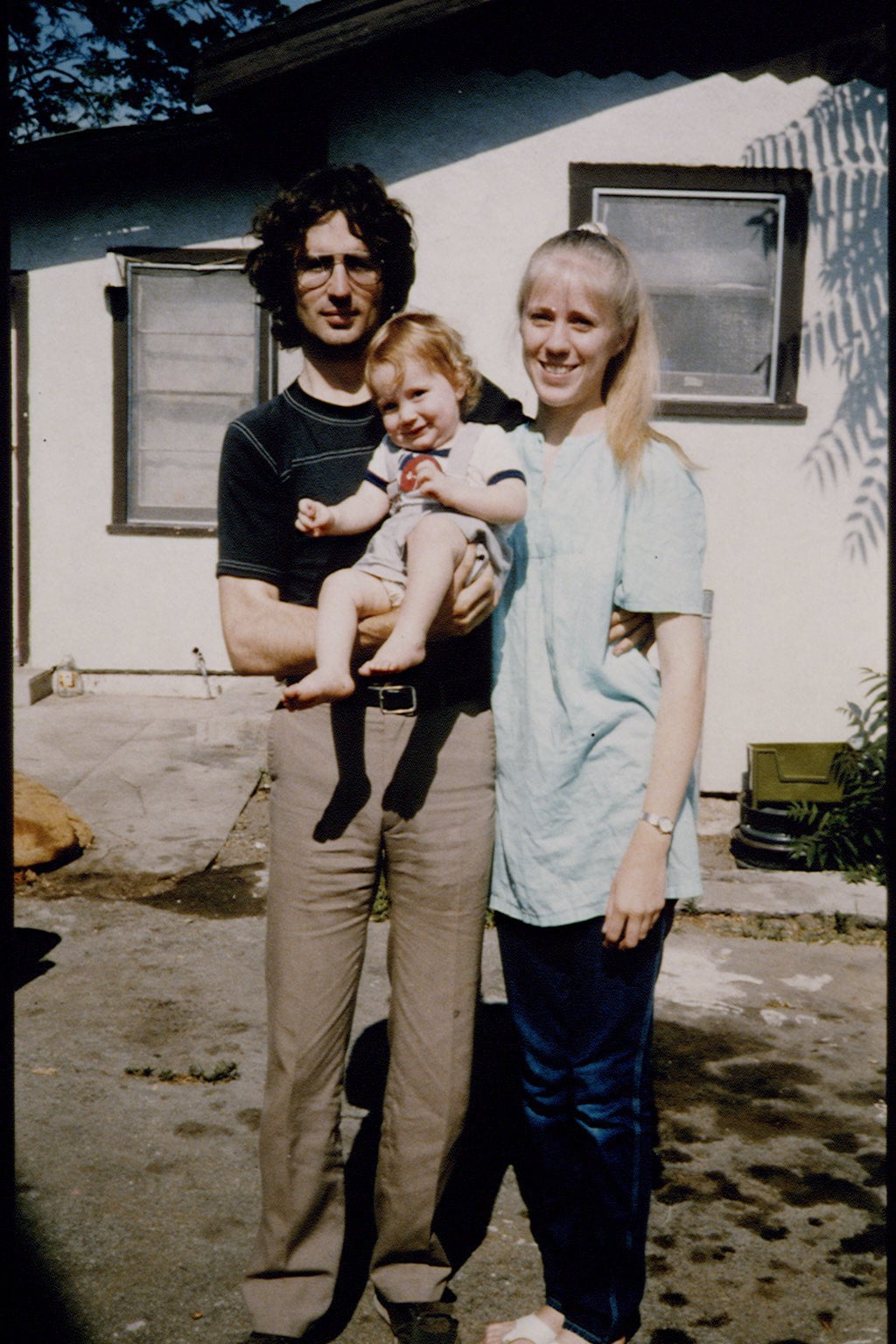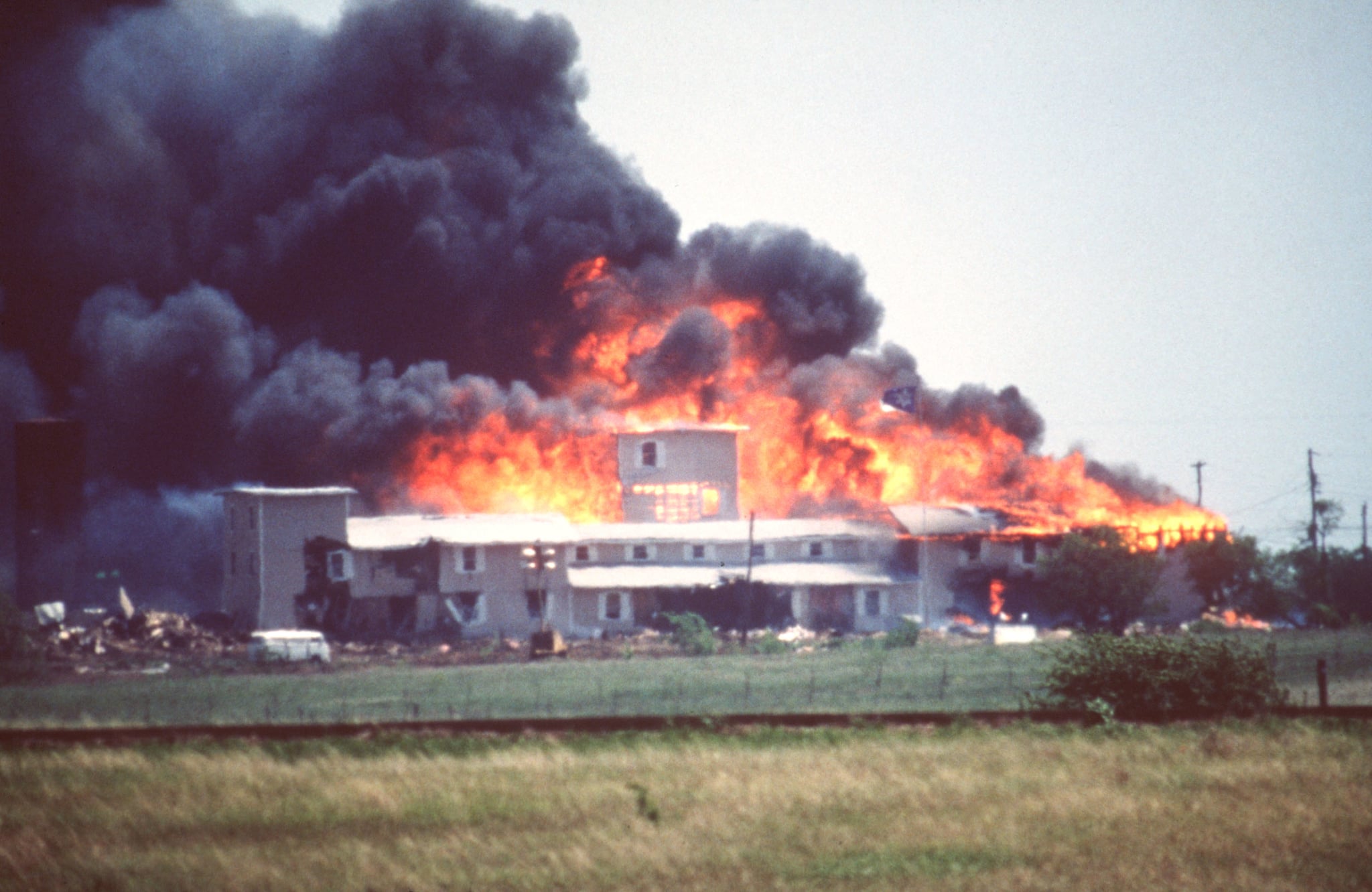Waco Standoff in 1993 True Story
Watching Waco on Netflix? Here's a Primer on the Tragedy That Changed America

The deadly events that unfolded at the 1993 Waco siege have left an indelible mark on American history. Back in 2018, Paramount Network released Waco, a miniseries portrayal of the tragedy that went down at the infamous Mount Carmel compound where the Branch Davidian religious group lived. Starring Michael Shannon, Taylor Kitsch, Julia Garner, and more, the show has now picked up traction as it landed in Netflix feeds. To see how faithfully to series portrays reality, read on to learn about the true story of the 51-day standoff between the FBI and Branch Davidians that culminated in a fatal fire.
To set the background, let's begin with an overview of the Branch Davidians. The group started as an offshoot of the Seventh-Day Adventists in the 1930s. Settling in the Mount Carmel Centre in Waco, TX, the Branch Davidians believed that there was going to be a second coming of Christ as well as an imminent apocalypse. In the 1980s, a charismatic man named David Koresh (born Vernon Howell) took over as the sect's leader. Koresh presented himself as the final prophet of the Branch Davidians, taking multiple wives — some of whom were underage — and fathering children while preparing the group for Armageddon. What exactly did this preparation look like? Months before the siege, federal authorities believed that the Branch Davidians were stockpiling illegal weapons — and indeed they were. Recovered weaponry included 60 M-16 machine guns, 60 AK47 assault rifles, about 30 AR-15 assault rifles, and other small pistols and unused bullets.
On Feb. 28, 1993, agents from the Bureau of Alcohol, Tobacco, Firearms, and Explosives (aka the ATF) arrived at Mount Carmel to search for illegal weapons and arrest Koresh. A shootout broke between ATF agents and Branch Davidians, though it's unclear who started it. The battle ended with four ATF officers and six Branch Davidians dead. Following the ceasefire, several children were released. Over the next 51 days, the FBI tried to negotiate with Koresh to get him out. It used several different tactics, including loud sounds and harsh lights.

On April 19, the FBI deployed military-grade tear gas and rammed the buildings to force the members out, the government citing Koresh's physical and sexual child abuse to end the standoff. Hours after they spread the tear gas, a fire broke out. Soon, Mount Carmel burned down. 76 Branch Davidians, including children, died, most from the smoke and fire, but a few had gunshot wounds. The FBI claimed that it did not fire any bullets, so it's assumed that the Davidians shot themselves. (This is, however, up for debate). Koresh, 33, was fatally shot in the head, though it's unclear if the shot was self-inflicted. Only nine members survived.
An independent arson investigation found that the Branch Davidians had set the commune aflame and shot themselves to carry out Armageddon, but the source of the fire remains disputed. Several Branch Davidians were indicted for unlawful possession of firearms and assisting the murder of federal officers.
Waco's aftermath fuelled a flurry of public criticism over how the government handled the situation. For some, the Waco standoff symbolized government overreach. This angle resonated with right-wing extremists and terrorists, including Timothy McVeigh, who carried out the Oklahoma City bombing on the second anniversary of the Waco fire.






